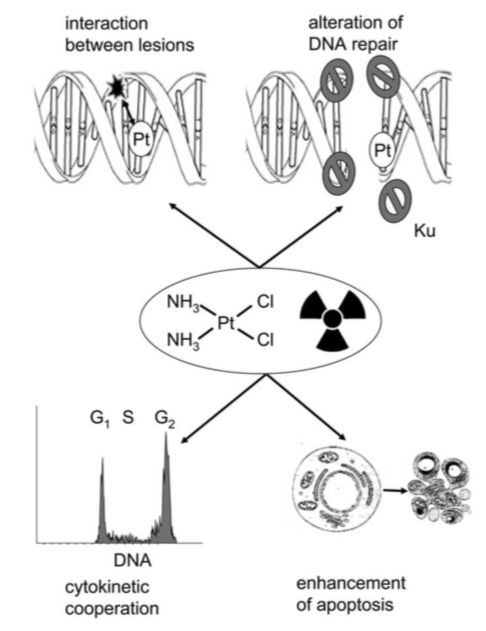The effectiveness of Radiation Therapy is limited by the amount of radiation that can be delivered before severely damaging the surrounding tissue. To combat the potential short and long term toxicity issues associated with radiation therapy, my project will further current cervical cancer brachytherapy research by combining it with chemotherapy. We hypothesize that a combined chemo-radiation therapy approach will not only improve the therapeutic efficacy but also decrease the radiation associated toxicities. Current brachytherapy practices utilize polymeric implants known as ‘spacers’ in between the two radioactive seeds. The sole purpose of this practice is to provide a uniform dose distribution in a tumor. However, preliminary collaborative studies between Northeastern University and Brigham and Women’s Hospital, have shown that these spacers can be modified with chemotherapeutic drugs, which can improve chemo-radiation therapy. In collaboration with my mentor Dr. Robert Cormack, we propose that the use of a injectable thermogelling hydrogel polymer (poly (N-isopropyl acrylamide)-based) doped with chemotherapeutic drug, Cisplatin, will provide a fast and sustained drug release profile allowing for radio sensitization and better radiation therapy. We plan to investigate the effectiveness of the hydrogel-based polymer composite to radiosensitive tumor cells and provide better therapeutic efficacy while lowering radiation doses and minimizing toxicities in cervical cancer.




